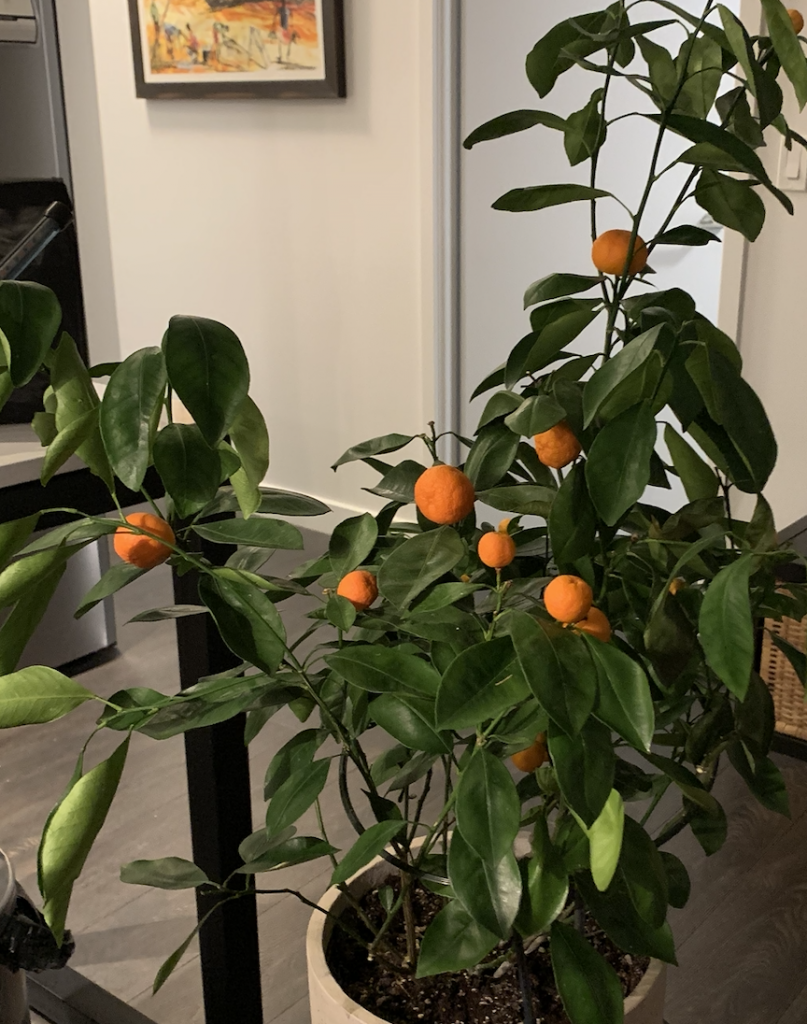
Hello – I purchased Juliet (yes, I named her), my calamondin orange tree, in early September, but this winter has been difficult. She has shed a considerable amount of her lower and inner leaves in the past couple of months, and now some branches are drying out completely. I try and keep the soil moisture levels moderate, usually watering her only twice a week. My apartment doesn’t get a lot of natural light in the winter, so I have been supplementing with a full-spectrum LED light for ~12 hours per day (sometimes 14, depending on my workday). I am also using a humidifier to keep the levels around 40-45%; sometimes, the humidity level does drop below 40%. I found out shortly after bringing Juliet home that she had a mealybug infection, and have been monitoring the situation, treating her with a diluted soap/rubbing alcohol mixture and q-tipping off bugs/infection areas on an ad-hoc basis. I am planning to re-pot her in the spring if she makes it to then.
Any assistance would be much appreciated.
Thank you for your question. We do receive a number of questions about the care of indoor citrus trees.
Central heating can put citrus trees under a great deal of stress and cause leaf drop. During the winter months, your plant needs 4-8 hours of direct sunlight a day and likes temperatures between 60-70 degrees F [16-21 degrees C] (and no drafts). Temperature drops of 5-10 degrees F [3-6 degrees C] at night are fine.
If it’s too hot, especially around the roots, the plant may drop its leaves.
Citrus plants like slightly acidic soil. For example, 1/3 sterile potting soil, 1/3 peat moss, 1/3 organic matter would be a good mix when you repot. Make sure the soil drains well – soggy soil could rot the plant’s roots.
In the winter, relatively high air humidity levels are especially important. Use of a humidifier would be helpful, as would placing the plant pot on top of a water-filled, pebble-lined tray. The bottom of the pot should not touch the water. As the water evaporates, this provides additional humidity to the plant. Another way to increase the humidity of the air is to mist the plant from time to time,
Water thoroughly on a regular basis (as you would any houseplant), allowing the soil surface to dry out between waterings.
You will also find our Gardening Guide on controlling insects without pesticides helpful in your treatment of mealy bugs.
See the link below:
Good luck with Juliet!

